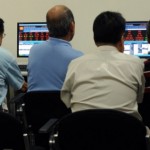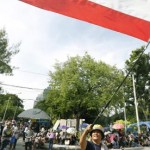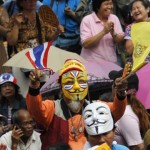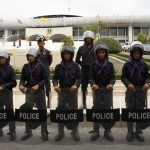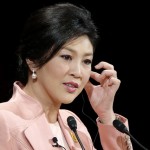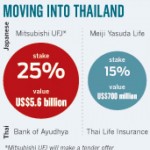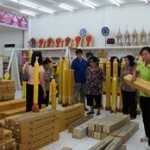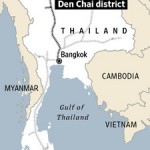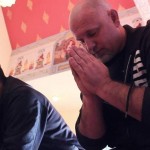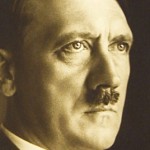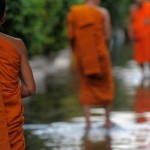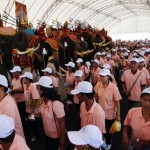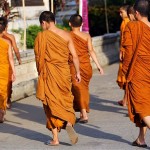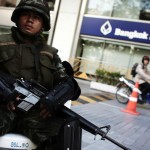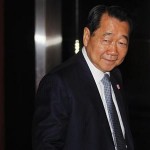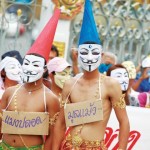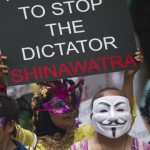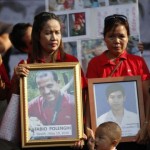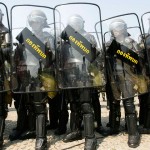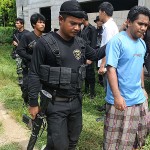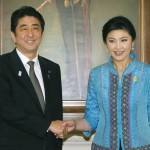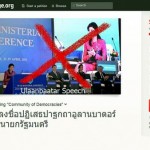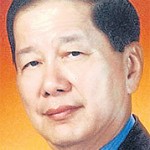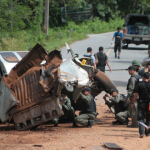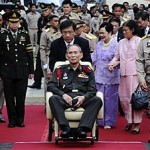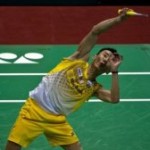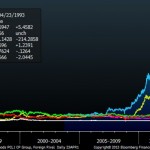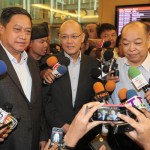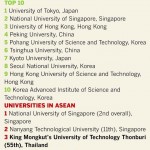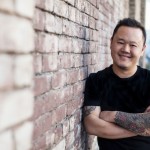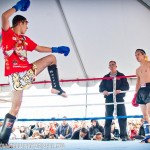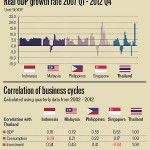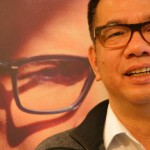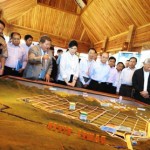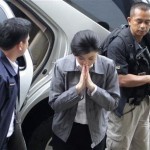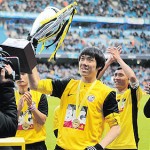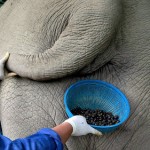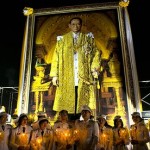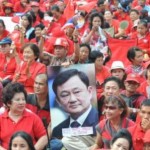Thai king calls for unity in rare speech
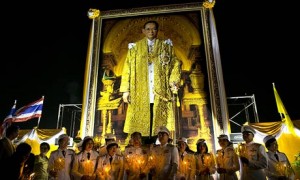 Hundreds of thousands of Thais armed with flags and cameras crowded around Bangkok’s Royal Plaza to witness a rare public appearance by their revered and ailing king, who celebrated his 85th birthday with a brief speech on national unity from a balcony throne overlooking the cheering masses.
Hundreds of thousands of Thais armed with flags and cameras crowded around Bangkok’s Royal Plaza to witness a rare public appearance by their revered and ailing king, who celebrated his 85th birthday with a brief speech on national unity from a balcony throne overlooking the cheering masses.
Long seen as the arbiter of Thailand’s often brutal political divisions and known as the “father” of the nation, King Bhumibol Adulyadej used his speech to stress stability and harmony. But with the visibly frail monarch having spent the past three years living in hospital and his words today halting and shaky, many Thais are wondering if that stability can survive his succession.
In his 66 years on the throne – the most of any monarch in the world – King Bhumibol has seen his nation seesaw from democratically-elected government to military-backed coup and back again. One thing that has never waned, however, is his popularity. In a front-page editorial praising the king’s stabilising effect in this nation of 69 million, the largely pro-establishment English-language newspaper the Nation said “the king as the individual and the monarchy as the institution have merged to represent the ultimate symbol of unity of Thailand”.
Now facing both the king’s ill health and the so-called “threats of a civil war from within and a highly possible spillover from a regional, if not global, war in the South China Sea”, the paper asked, “Will Thailand survive?”
From his throne above a vibrant sea of 200,000-odd supporters clad in yellow, the colour of the monarchy, King Bhumibol stressed that political unity had to come from within. “If Thai citizens still hold this harmony in their hearts, there is hope that in whatever the situation, Thailand will surely get through it safely and with stability,” he said.
The king has in recent years referred to stability in other speeches but it seemed particularly well- timed. Just last month a former army general tried to lure 1 million Thais to the same plaza to call for the resignation of the prime minister, Yingluck Shinawatra, alleging that her government was corrupt, anti-monarchy and a puppet to her brother Thaksin, the former prime minister ousted in 2006.
Six years on, the country is still bitterly divided among yellow shirts, who support the monarchy, and red shirts, who support Thaksin and who blame the palace – though not so much the king – for supporting the coup. The divisions between the two sides are sometimes brutally violent: in 2010, some 2,000 were injured and roughly 100 killed in violent protests between the military and protesters calling for a dissolution of parliament.
Discussing the future of Thai politics is no easy task. While the king’s presence pervades many things Thai – his photos adorn homes and shops, his birthday serves as both a public holiday and Father’s Day, and anecdotes about him filter into school curricula and government projects – his monarchy is protected by the harshest lèse-majesté laws in the world. Those accused of insulting or threatening the royal family face up to 15 years in prison, and a computer crimes law targets, among other things, those who click “like” or “share” on sites deemed offensive to the monarchy.
The heir-apparent to Thailand’s throne is the king’s only son, Crown Prince Vajiralongkorn, 59, a career army officer who does not enjoy the same popularity as his father and is widely known abroad for his three marriages and spending sprees in Europe.
Many Thais hesitate to discuss the subject of succession, though there are rumours that the king could possibly defer succession to the prince’s son instead. This is unlikely, sayssaid a leading Thai academic, Pavin Chachavalpongpun, of Kyoto University’s Centre for Southeast Asian Studies. “If you look at what has happened in the past 100 years [in Thai history], I think it’s quite unlikely that the king would skip the crown prince, because legally it has to be him. If he wants to skip [a generation], he has to give a reason for it, and whether the king would be willing to give that reason [is unclear].”
Instead, says Pavin, it seems the palace has been grooming both prince and media for his eventual succession. “There have been attempts in recent years to recreate his image and make him an acceptable candidate, so you see him on television more and more doing royal obligations,” he said. “If he backed off, this would be discomforting.”
From: http://www.guardian.co.uk/world/2012/dec/05/thailand-unity-king-bhumibol-birthday












